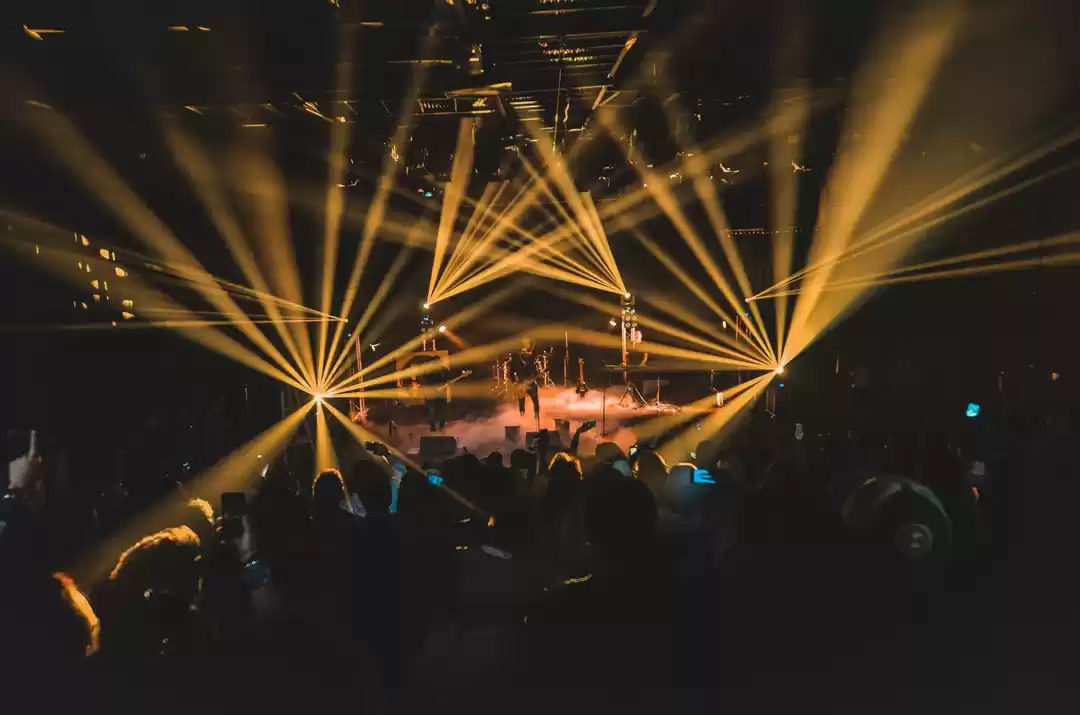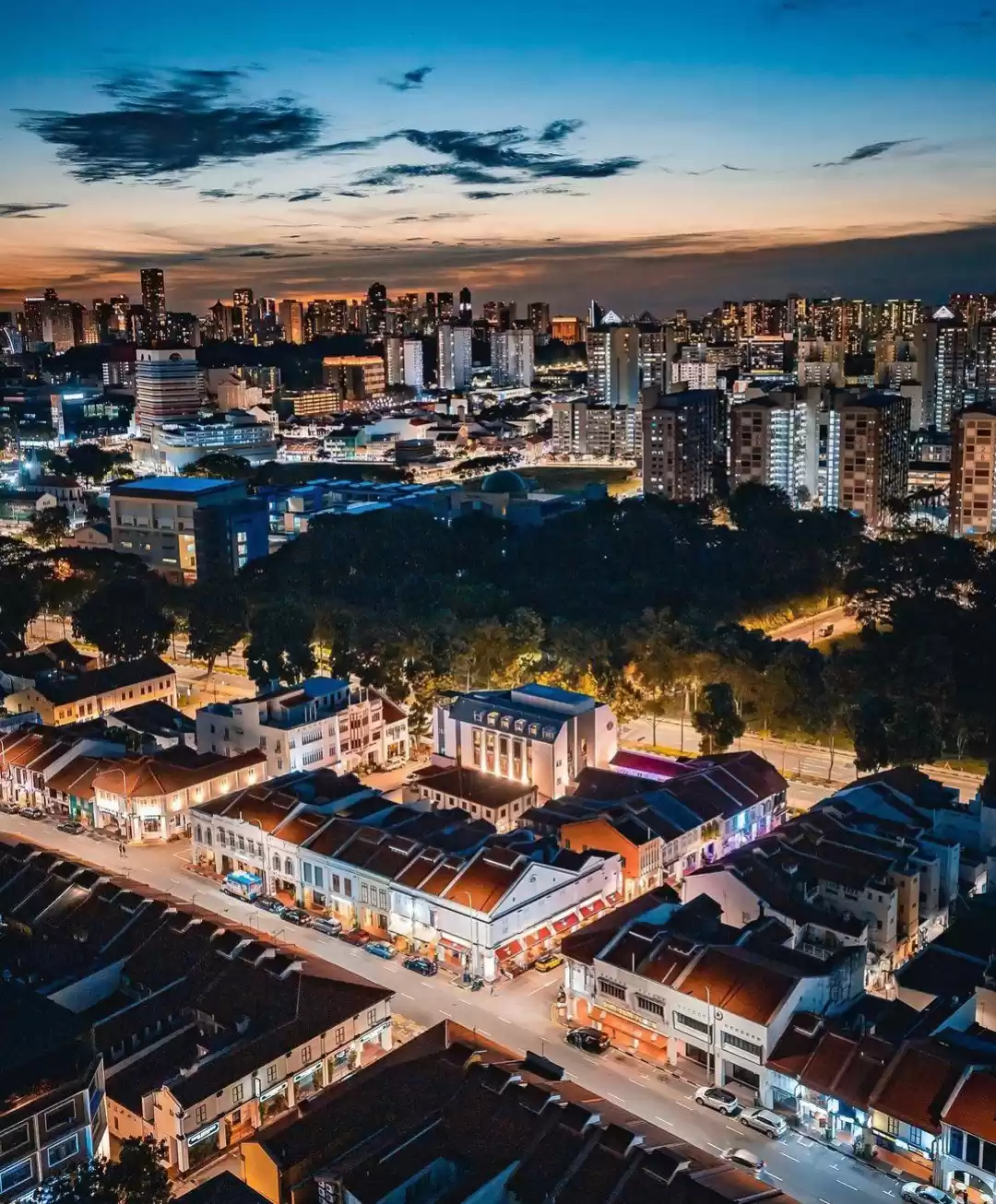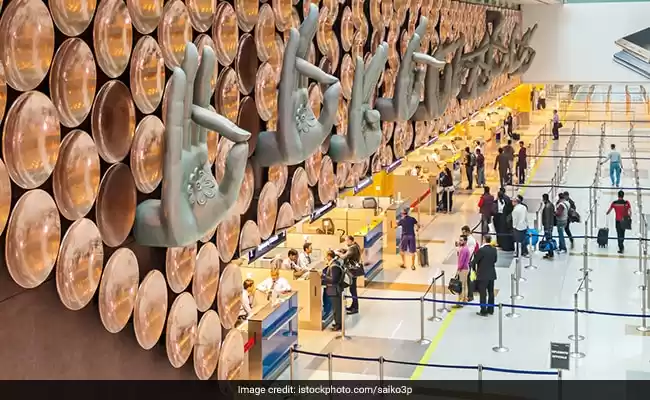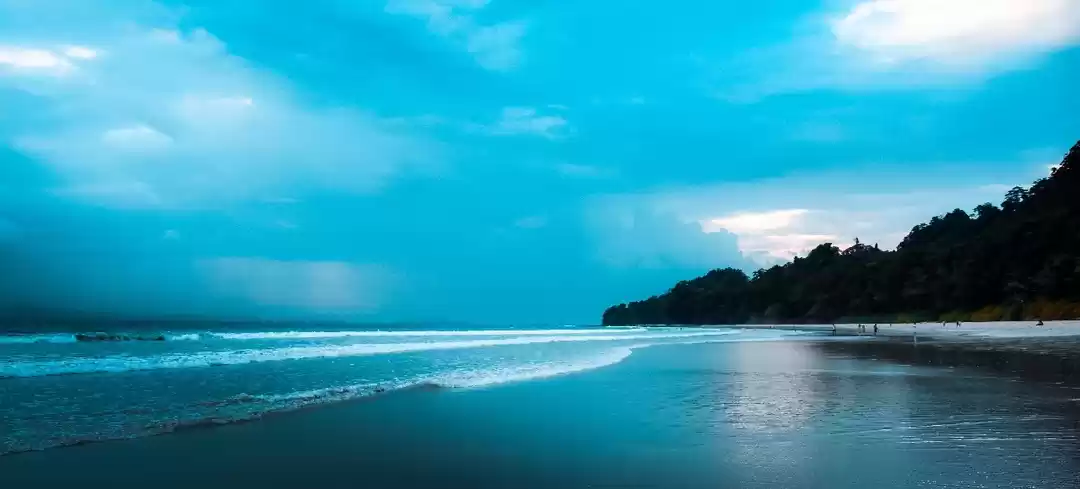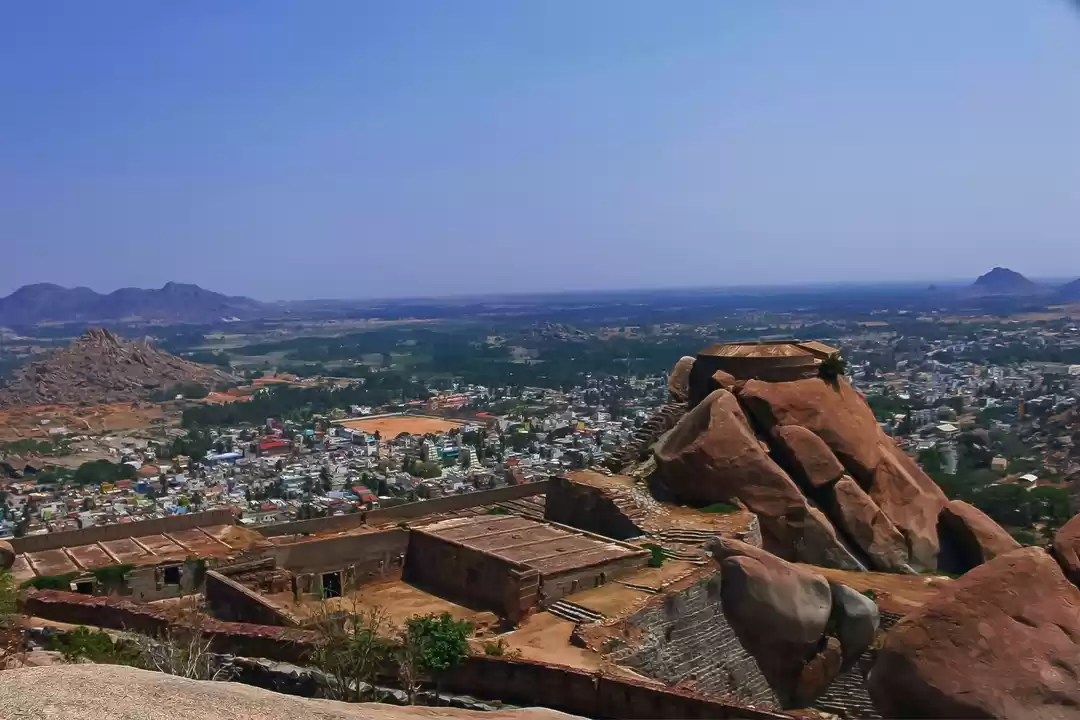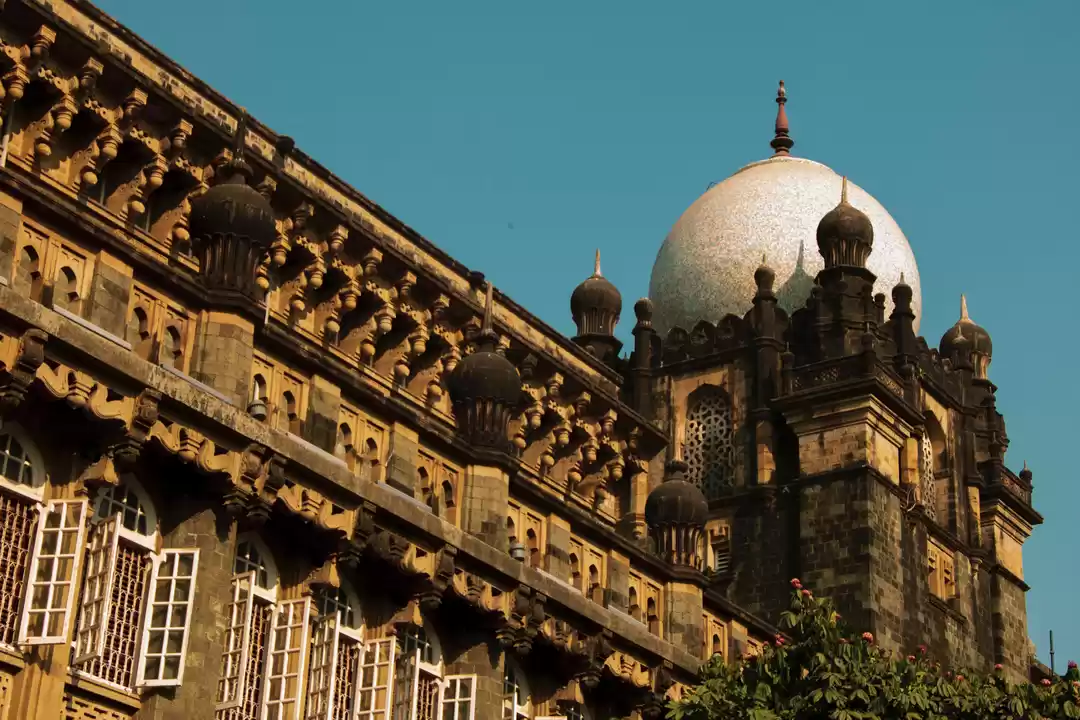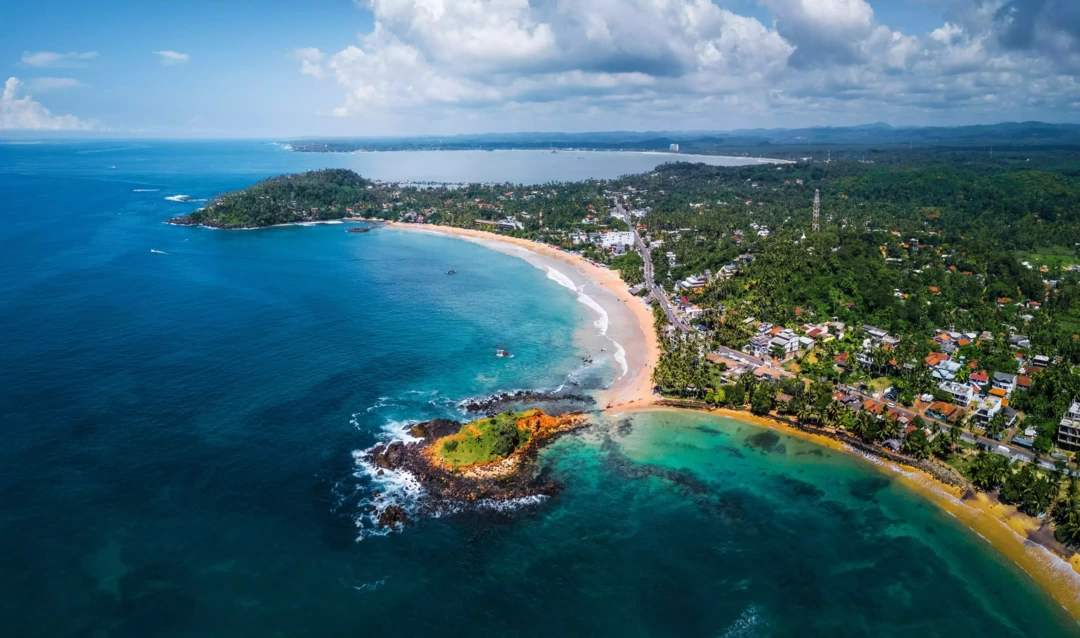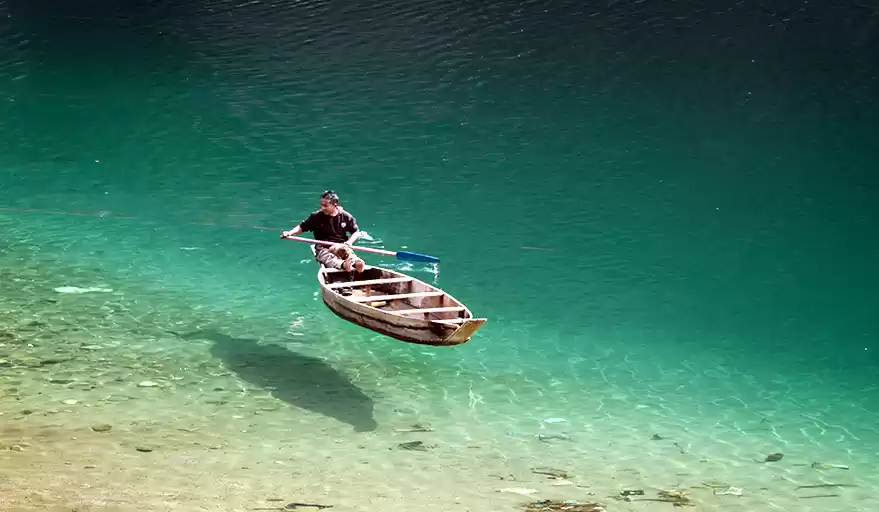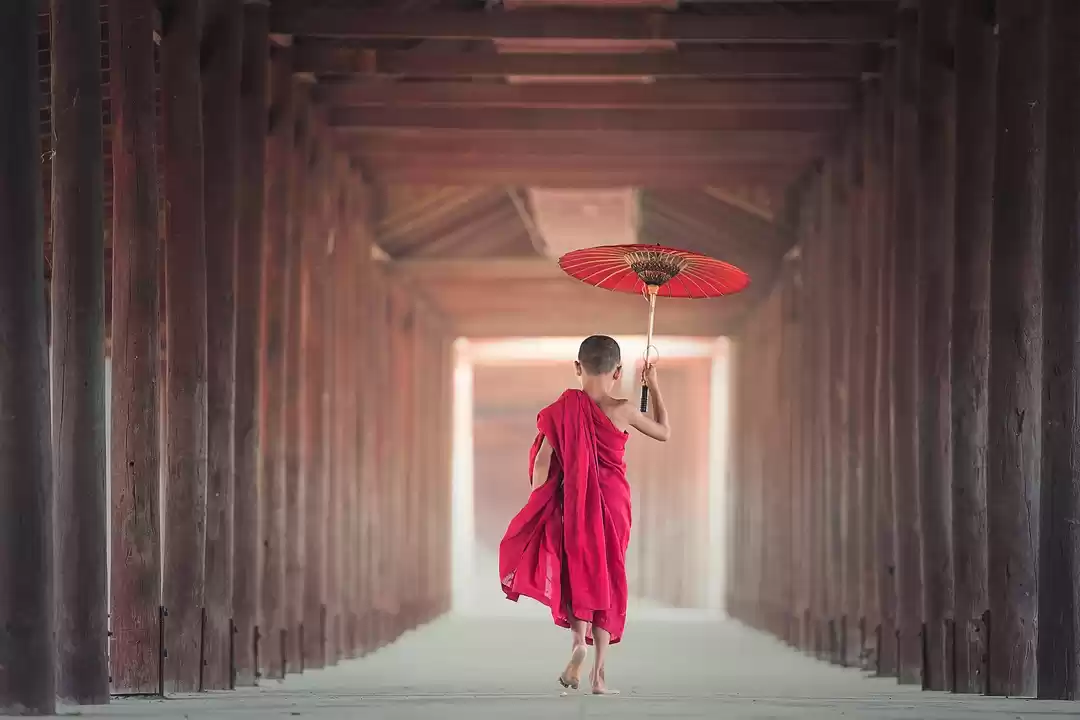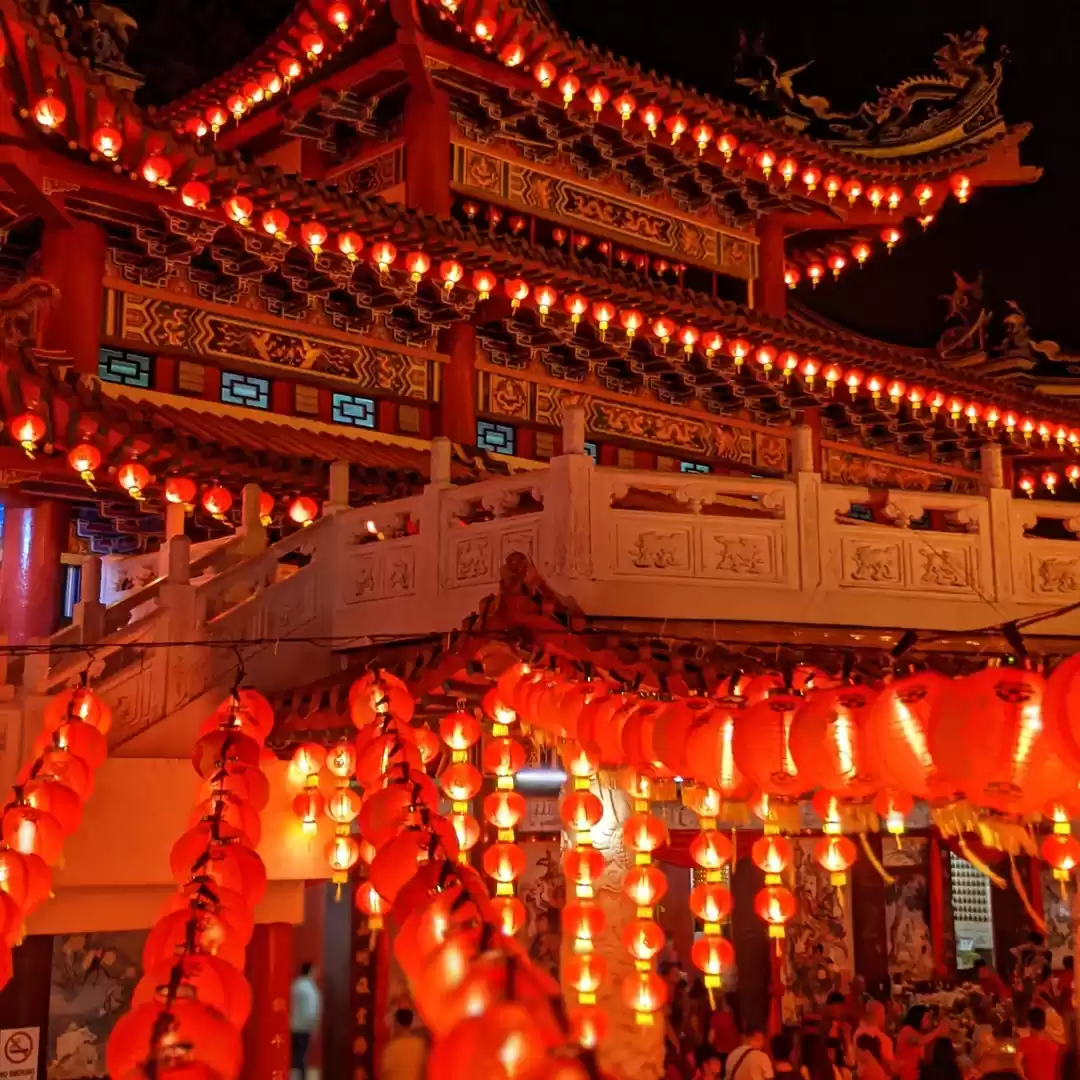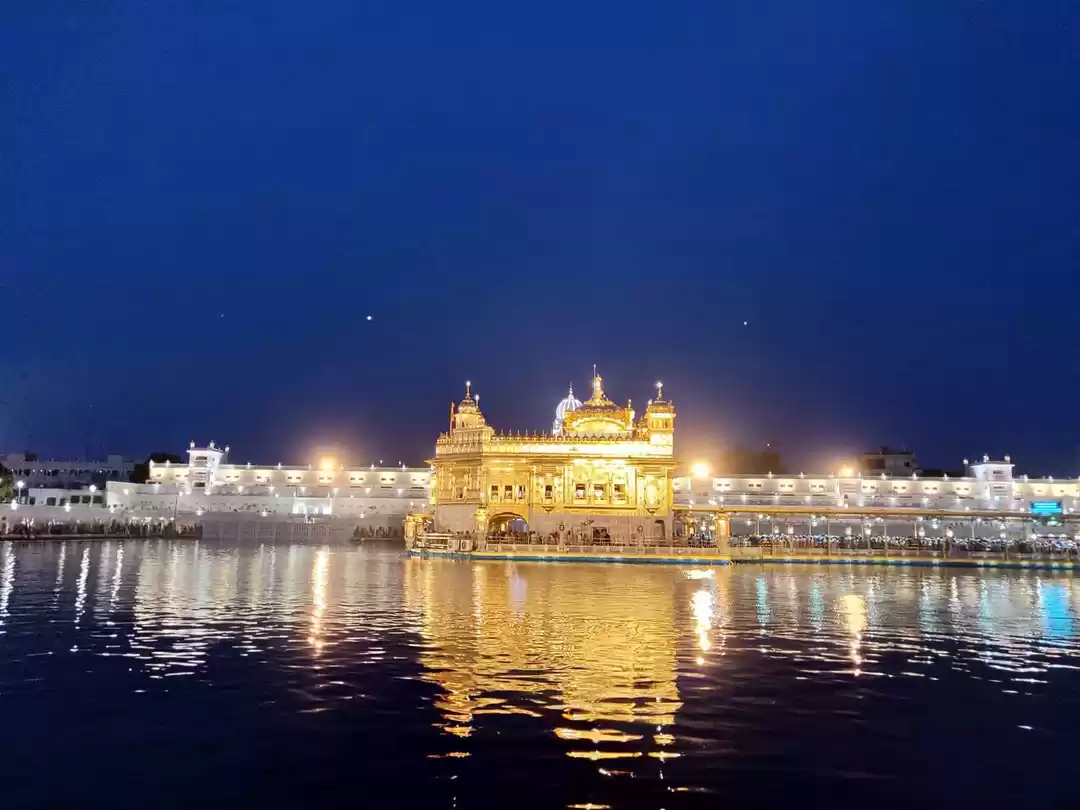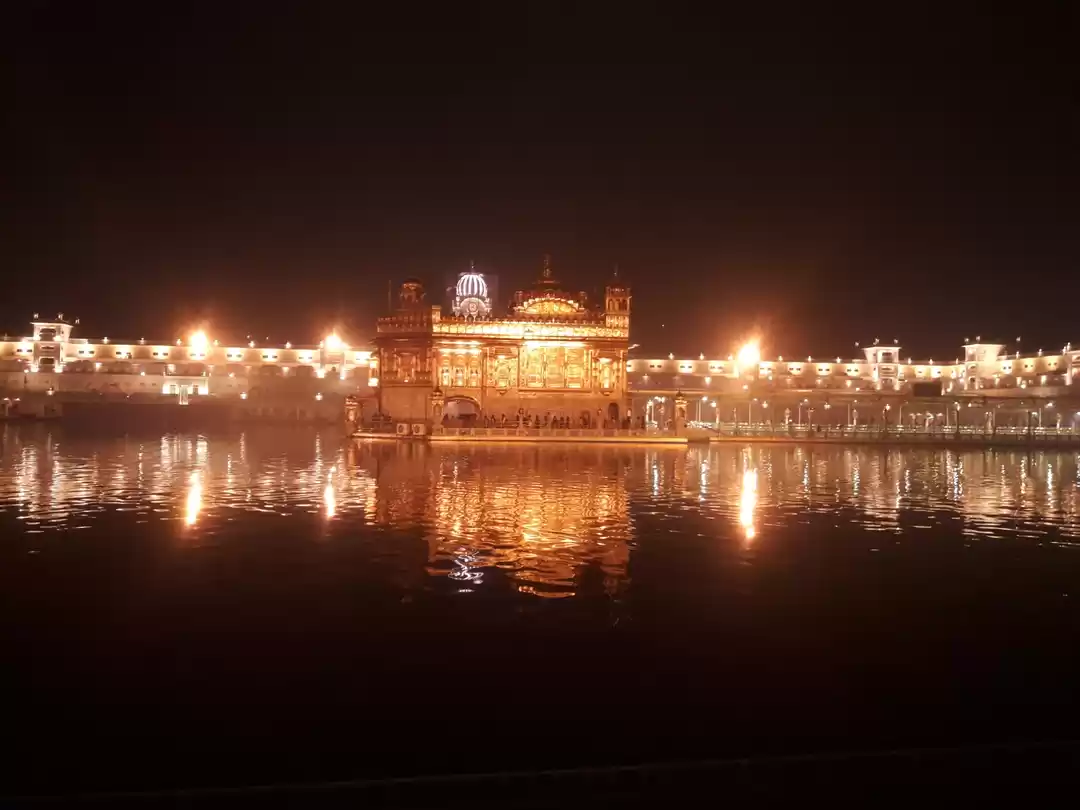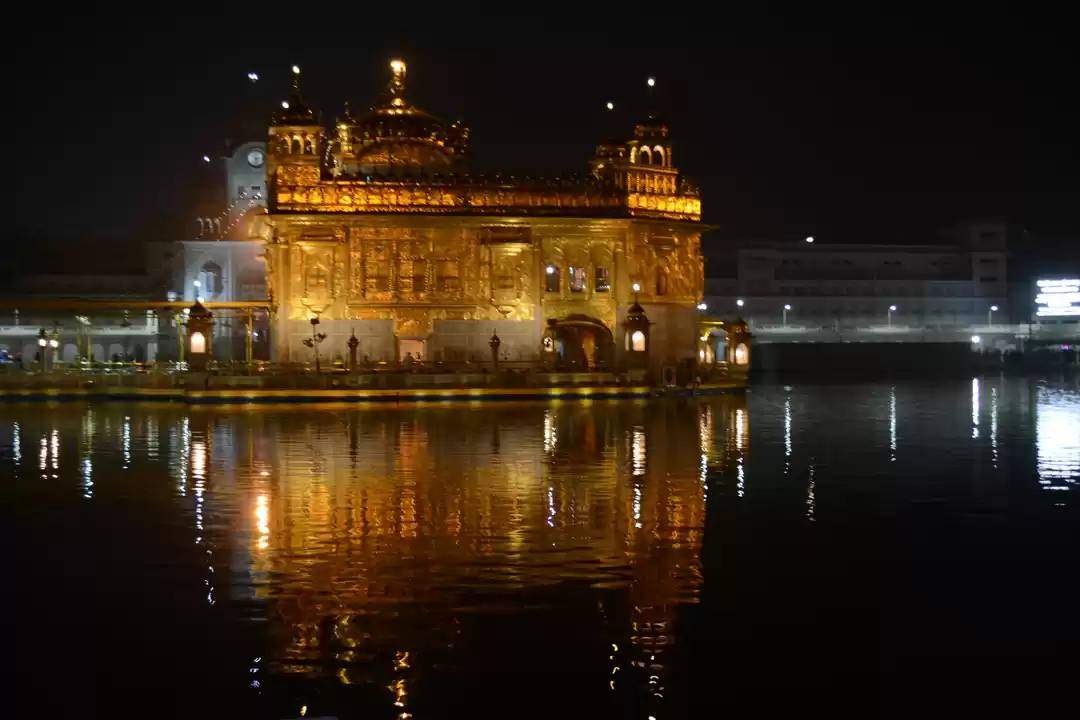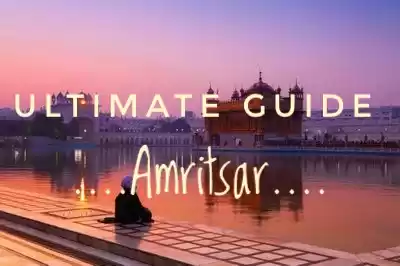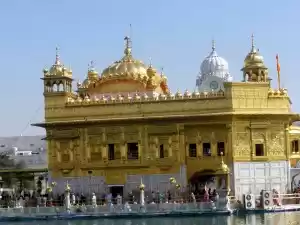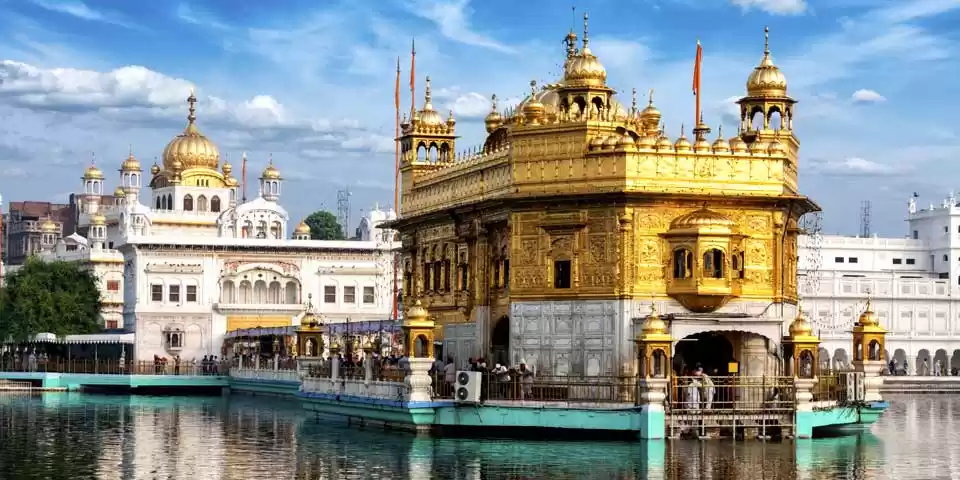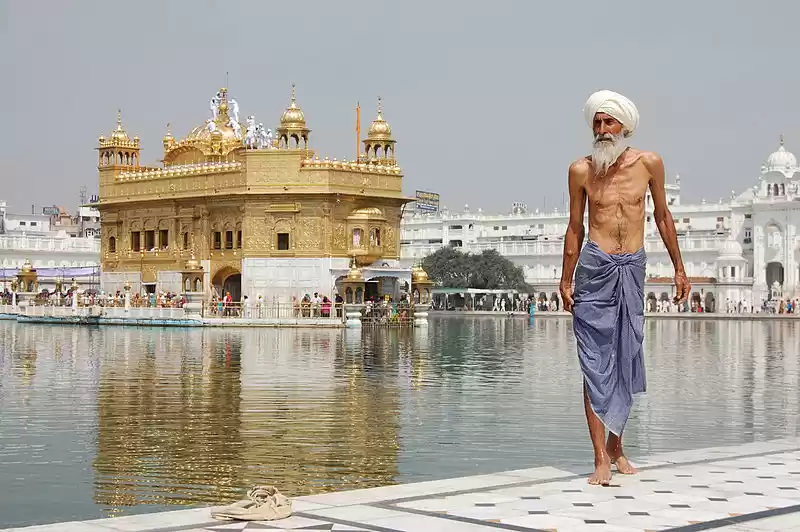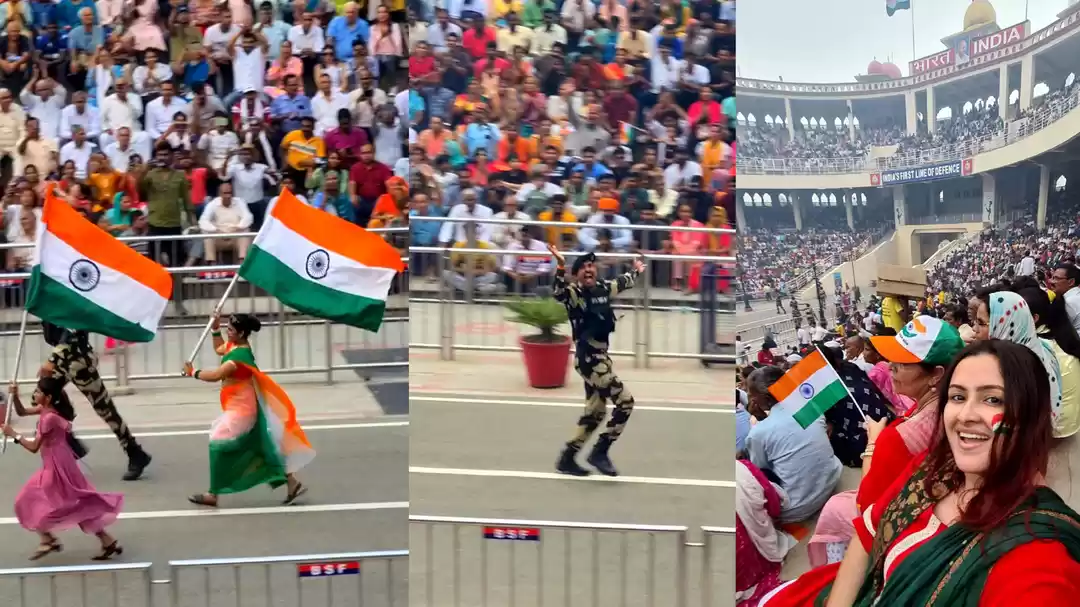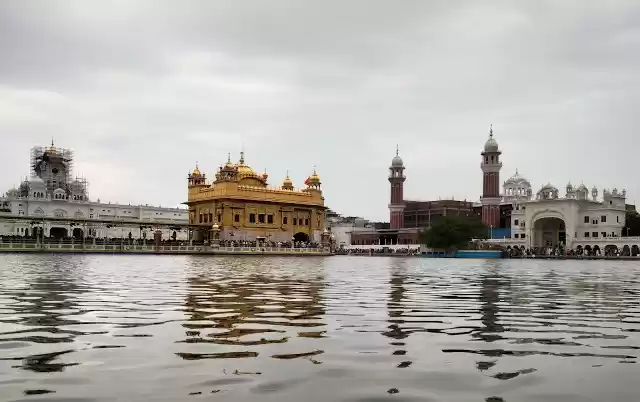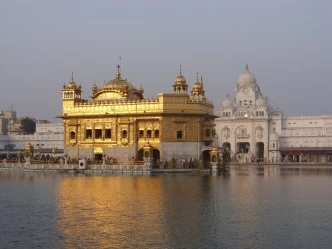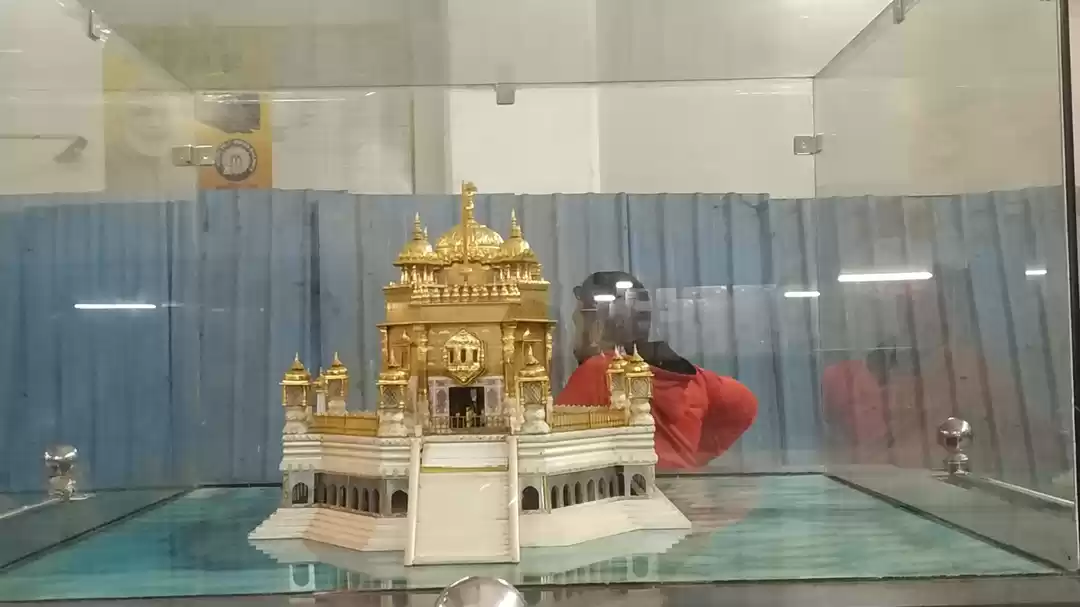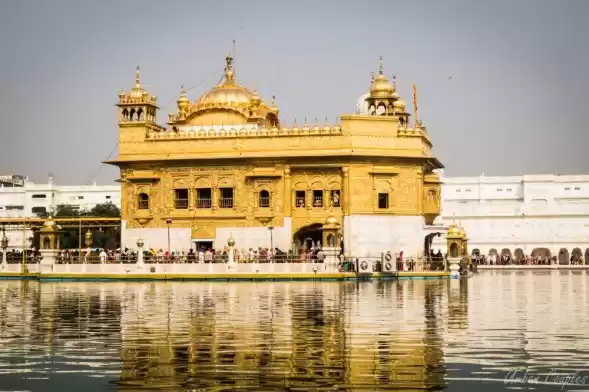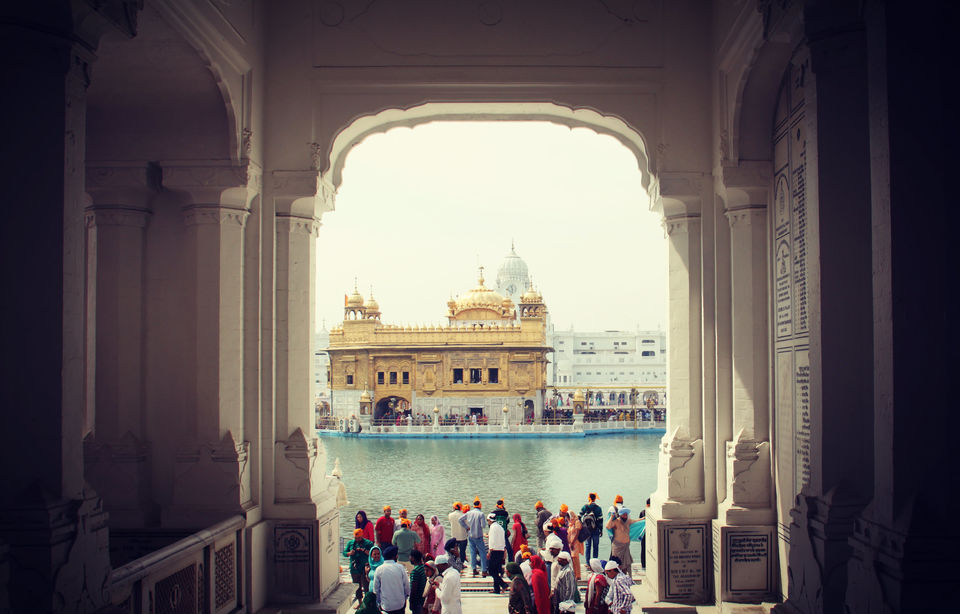
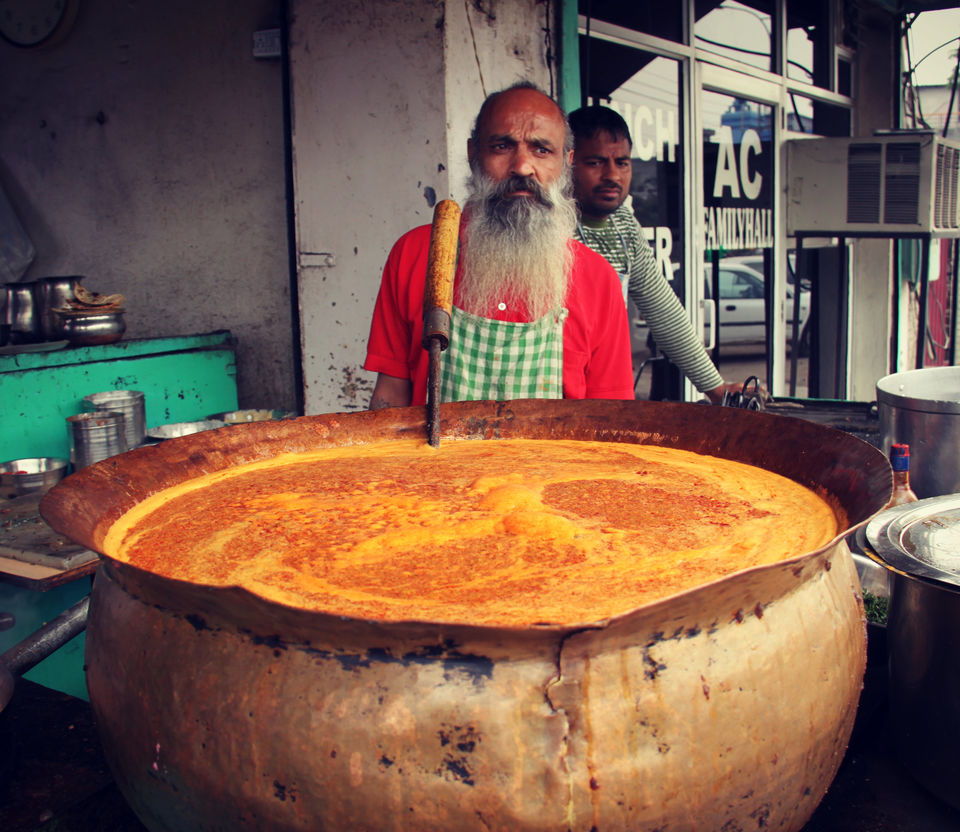
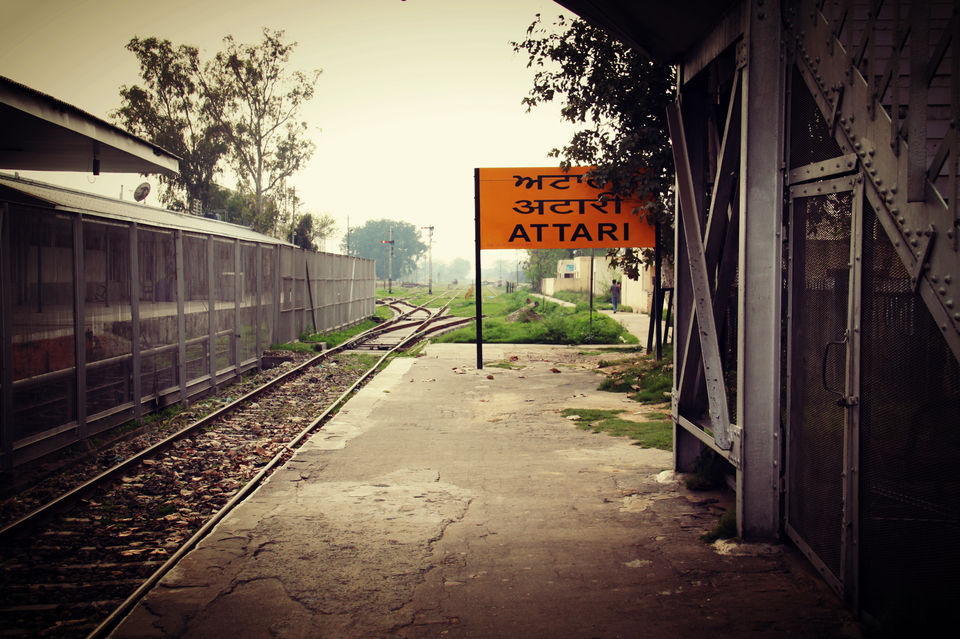
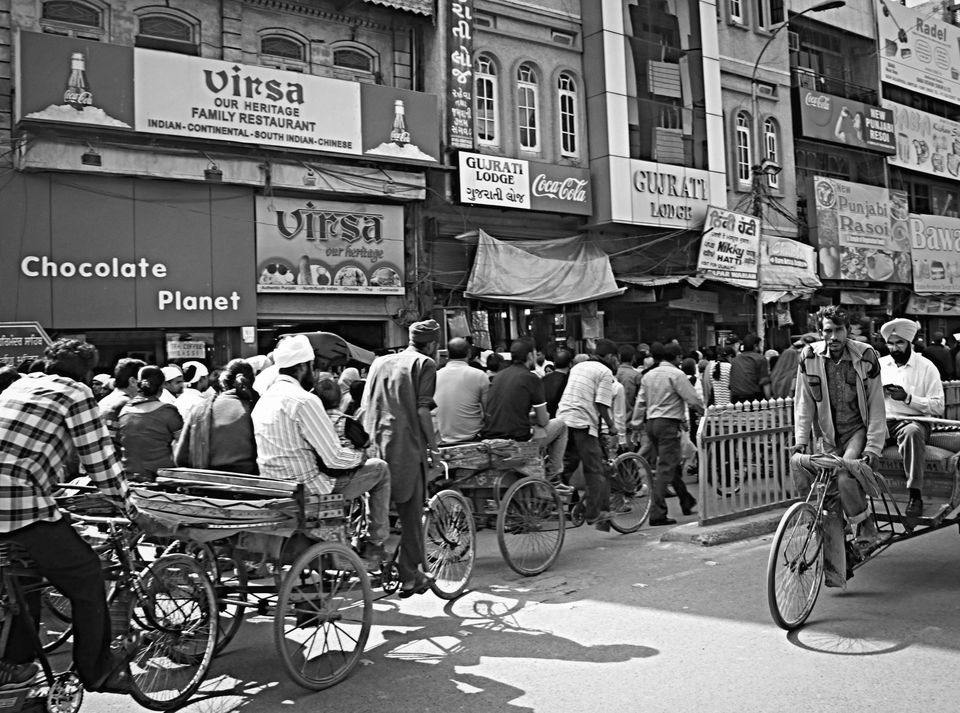

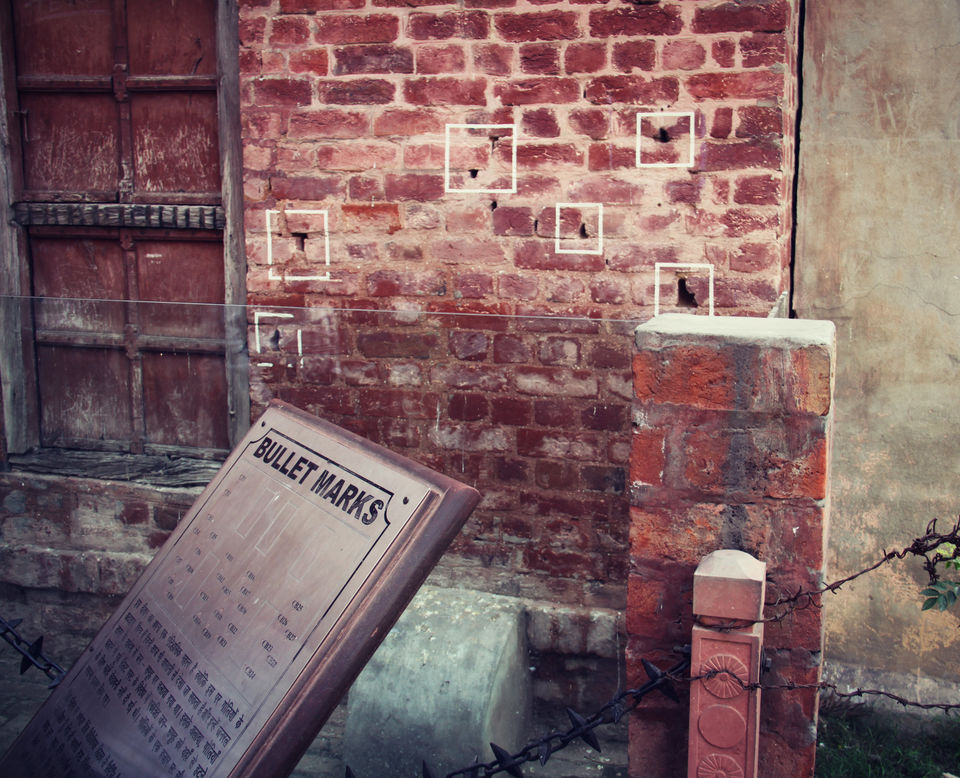

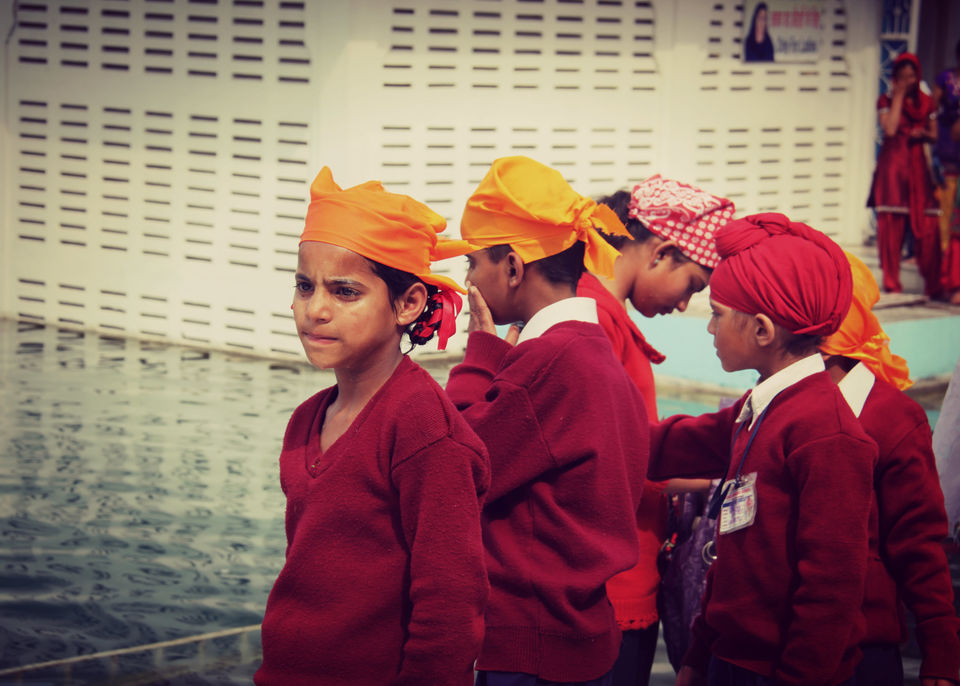
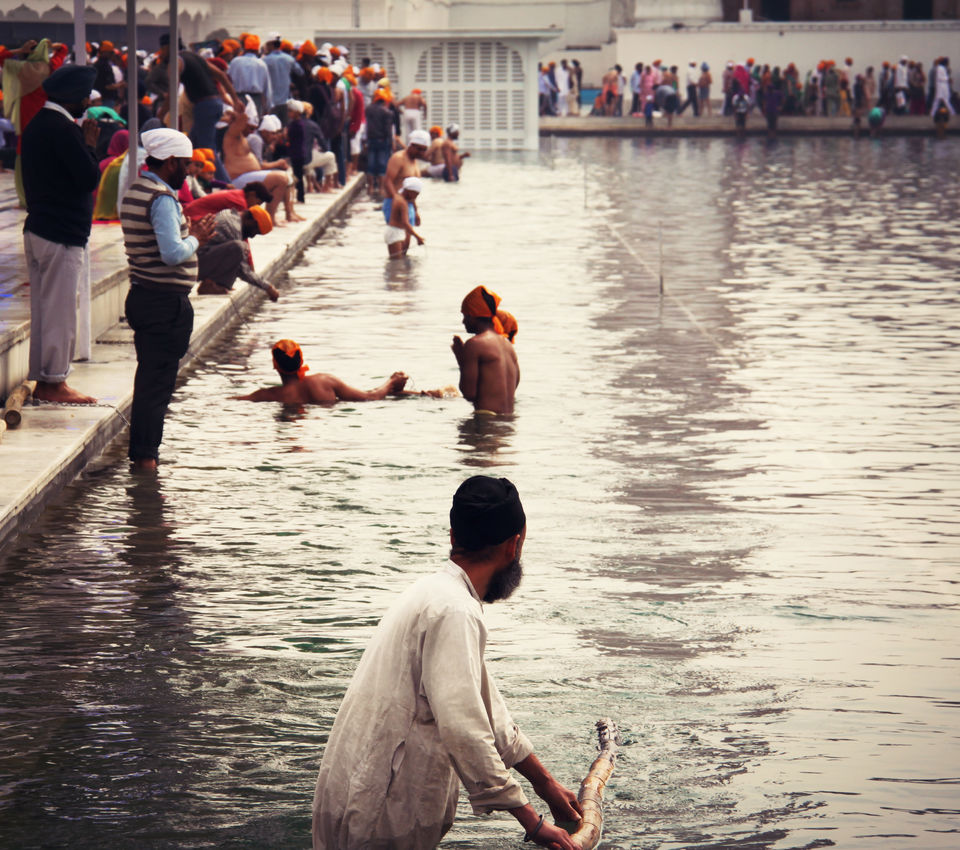
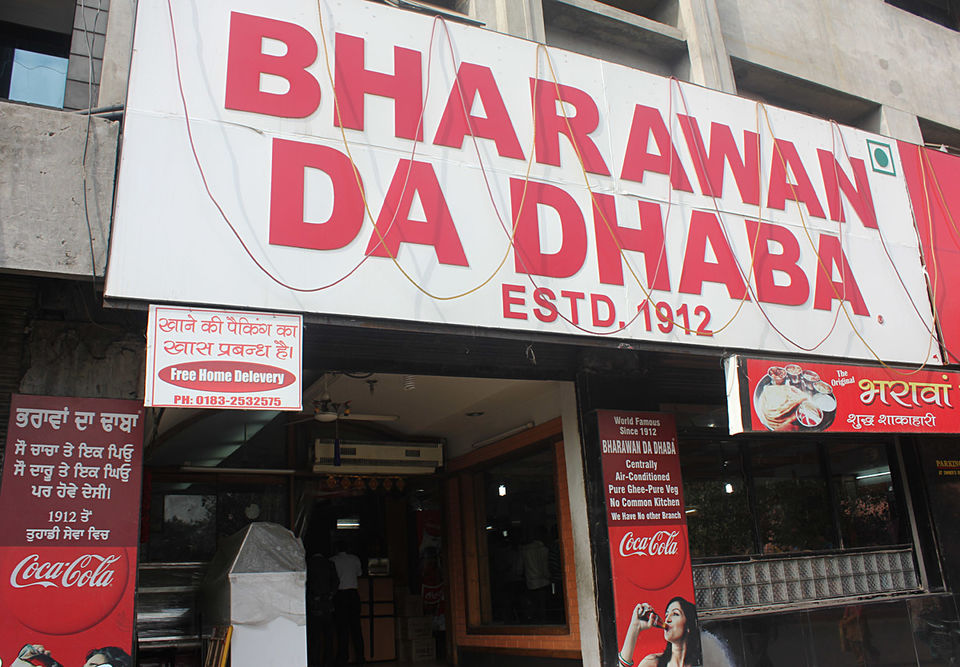
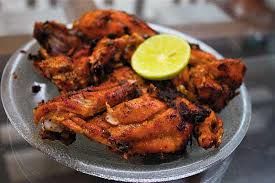
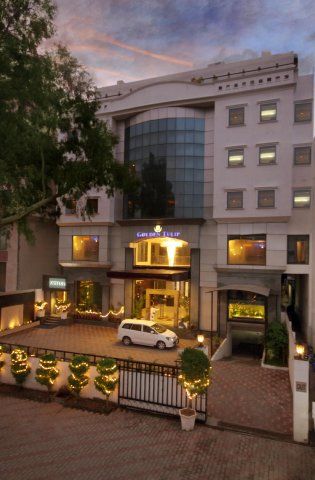



My grandmother, while narrating her stories of Amritsar to me exuberated with emotions and memories about this golden city, which she used to visit as a child every weekend from Lahore. Amritsar to her, is more than just the city of Harmindar Sahib or Jalianwalah Bagh. It is the city where her numerous childhood memories are attached before and after partition. When she was my age, she traveled yet another time to Amritsar, this time from Jalandhar because of the Partition. Her experience this time was definitely different as compared to the earlier ones. This story gave me the goose bumps as I listened to her patiently telling me about the partition, the Golden Temple, Hall Bazaar, Lawrence Road and the food, which cannot be sidelined. Listening to these memoirs, I couldn’t help myself booking a ticket for the early morning flight to Amritsar that lands straight at the Sri Guru Ram Daas Jee Airport.
Amritsar, approximately 460 kms away, is easily commutable by the Amritsar Shatabdi as well. However, if you are looking at spending just one night, taking a flight saves a lot of time in hand to explore the city.
As soon as we touched ground, I knew the first thing I had to do was visit the Golden Temple or popularly called Darbar Sahib. I had pre-booked a taxi from Delhi itself, but to get a pre-paid taxi from the airport is also another great option. As I sat in the cab with my small bag, Itinder Singh (the taxi driver) symbolized all what is ‘Amritsari’. He had so much of pride for the city and started telling me a number of interesting facts about this old walled city that is encompassed within 12 gates. It was then, that I realized I have the perfect guide for the day. We reached the Golden Temple in about 20 minutes and the taxi had to be parked, since no cars are allowed in the narrow gullies leading to the Gurudwara. The rickshaw to the Darbar Sahib, from the Parking area took Rs.10 where he rickshaw puller insisted that he waited for me till I return.
As I entered this spectacular spiritual shimmering temple, I somehow felt at peace. I washed my feet at the climbed up a couple of steps, excited to catch a glimpse of it. I walked closer, and had to climb down a couple of steps, slowly, this magnificent façade came into my sight. I was truly left stunned as I saw it set up beautifully on the Sarovar (lake), while thousands of followers, all with devotion in their eyes either took a bath in the Sarovar with their sons, knelt on the floor to pay it respect, enjoyed the Langar which is available all day round or just stared at in awe. As the pilgrims first pay their respect to the number of small shrines while they walk around the parkirama and the Harmindar Sahib, it is only after they complete this round, they do genuflection before the Akal Takth and queue up in hundreds to enter the main shrine. With devotees from various backgrounds, engaging themselves in the Kar Sewa together, I couldn’t help but point out the sense of equality I experienced during this visit.
If you were to visit the Golden temple at night, just like I did after ending my day in Amritsar, there would still be thousands of pilgrims paying their respects. At night, with the temple lit up, it’s an experience that one cannot let go of. It is one of those sights that you would cherish forever, as this the Darbar Sahib at night offers nothing less than a phantasmagoria.
Post this spiritual visit, I decided to grab a big glass of lassi with a samosa as I was famished since the morning. Lassi, which is available in almost every nook and corner around the Harmidar Sahib is a must try with an inch of Malai on top and beautifully whipped, cool, sweet yogurt below. One can also try the varieties of Kulchas for a quick snack yet sumptuous before heading to the Jalianwalah Bagh.
The Bagh is a 5 minutes walk from the Golden Temple itself. As I entered the narrow hallway from opening up to this huge garden, the first thing I noticed was a marking stating “This is the place where the bullets were fired from’. It was then, that I could entirely visualize the gruesome event that took place on April 13, 1929. As I approached the bullet marks on the walls, this eeriness surrounded me. It is hard to think how, from a lane, where even three people can't walk next to each other comfortably, one man managed to perpetrate a massacre, leaving a reported hundreds dead and thousands injured. As hoards of tourists surrounded the martyrs well, this space still had its own sense of silence that lets you recapture your thoughts and pay your respect to all those who lost their lives.
Having completed my morning to-do list, I decided to check-in at the hotel and start by day exploring the city as it was still in the fine hours of the morning. I stayed at Hotel Golden Tulip which was extremely comfortable and probably the best option in Amritsar if you’re looking at a tariff of INR3,203 - 5,158 per night.
Incase, you want a true 5 star, top of the line experience, Hotel Ista is where you must check in with tariffs ranging from INR 4500 – 7,700 per night. Various other options, which are worth looking up, are Hotel Country Inn, Best Western Merrion and HKClarks inn.
After having a quick shower, my stomach growling with hunger, I went for a hearty meal at Makhan Restaurant. Truly living up to its name and Amritsar’s pride, this small AC restaurant offered the best Amritsari fish I have ever tried with butter naan. For vegetarians, the best option would be to try the tomato paneer with any bread that they offer. The list of items on their menu weren’t many, but it absolutely aced when it came to parameters of taste and authenticity.
Now that I was satiated and refreshed, I decided to visit the Attari station, Kanjiri Pull and the Wahga Border. Attari station is about 30 minutes from the old city and only about 3.5 kms from the Wahga Border. The Samjhauta Express or the Attari Express leaves the Old Delhi railway station, and then travels to Attari, where the Attari Express changes formally into the Samjhauta Express. After the customs and immigration clearances at Attari, the passengers start their journey to Lahore in Pakistan through the Wagah border. This quaint station is a must visit, being the oldest train link between India and Pakistan since partition in 1947.
From the Attari Station, before visiting the Wagah border, I visited Pul Kanjiri, a historical site that hasn’t been given it’s due share of publicity that it deserves. This fascinating and charming site is based on one of the numerous legends from Mahraja Ranjit Singh’s time. The legend states that a young Muslim dancer (Punjabi word Kanjiri for concubine) Moran, hailing from Lahore, once was on her way to dance at the Maharaja’s Baradari, her sandal fell into the water channel on the way. The piqued dancer refused to dance until a pul (bridge) was built, hence the place became popular as Paul Kanjri. In fact, what is interesting about this site is that the Pakistan border is less than 2 acres away, with absolutely no hoards of people swarming the area, unlike the Wagah Border, which is where I went next.
Wagah Border, the only open border crossing India and Pakistan and which is officially accessible by both the nations hosts a closing ceremony as 'lowering of the flags' ceremony. It is a daily martial custom that the security forces of India (Border Security Force) and Pakistan (Sutlej Rangers) have mutually followed since 1959. This interesting ceremony takes place every evening before sunset around 5:30 pm. I had a VIP pass and hence access to the gates was much faster where I also got seated in the area closest to the ceremony. If you are not planning to acquire a VIP pass, then you must make sure you reach way ahead of time by at least 3:30 pm to grab a seat and stand in the long, almost never-ending queues.
As I sat in the stands, I could hear thousands of people screaming and cheering right before during the beating the retreat ceremony. Crowds screamed ‘Jai Hind’ and Vandematram with an incredible energy and a nationalist fervor. On the other side, there were hoards of Pakistani nationals screaming ‘ Pakistan Zindabad’ with as much energy and zeal. It was here that I realized that these lines are political because there was absolutely no difference between the people on either sides. This 45 minute ceremony ends with an aura of celebrations along with loud shouts of patriotism. During the ceremony, however, one could sense silence as the soldiers marched, so clinically that I could hear their boots tap on the ground with each step they took.
Post the ceremony, I decided to have an early at the famous Surjit Chicken House at the very elite area, Lawrence Road. As Amritsar is a land of foodies, it was very pleasant to see all kinds of people, coming together and enjoying the heavenly food at this humble restaurant.
I woke up in the morning and went for an Amritsari breakfast to the famous Bharawan Da Dhaba, established in 1912. This restaurant offers top-of-the-line north Indian cuisine. I tried the stuffed paratha glistening with Desi ghee, offered here. They were, of course, out of this world and I felt I was already ready for a siesta. Other places that you must try are Kesar Dhaba (Highly Recommended), Beera Chicken Corner, Brijwasi, MK Hotel and All India Famous Kulchas.
Amritsar is known for its Jutis, Phulkaari work, Papads and Wadiyas, which I personally had all intentions of picking up. An advice would be to definitely carry a bigger suitcase even if you are traveling for a day as there is no way one can resist the temptation of the abundance of items available in this shopper’s paradise. I went to Raunaq Jutis in Hall Gate, which was recommended to me Mr. Itinder Singh. From here, I took a rickshaw to Hall Bazaar where I went to Raja Exclusive to shop for Phulkaari Chunnis. Other markets that I glanced through and that one should definitely visit are the various Katras. Katra Jaimal Singh and Katra Aluhwalia for their clothes, Katra Sher Singh and Guru Bazaar for the numerous goldsmiths and food items such as papads, wadiyas and pickles.
When my shopping spree ended, I was loaded up to the brim with numerous types of shopping items and completely satiated with my wonderful Amritsar experience. When I reached the airport and boarded the flight back to Delhi, I realized that how this ‘Golden City’ is truly timeless.
As I entered this spectacular spiritual shimmering temple, I somehow felt at peace. I washed my feet at the climbed up a couple of steps, excited to catch a glimpse of it. I walked closer, and had to climb down a couple of steps, slowly, this magnificent façade came into my sight. I was truly left stunned as I saw it set up beautifully on the Sarovar (lake), while thousands of followers, all with devotion in their eyes either took a bath in the Sarovar with their sons, knelt on the floor to pay it respect, enjoyed the Langar which is available all day round or just stared at in awe. As the pilgrims first pay their respect to the number of small shrines while they walk around the parkirama and the Harmindar Sahib, it is only after they complete this round, they do genuflection before the Akal Takth and queue up in hundreds to enter the main shrine. With devotees from various backgrounds, engaging themselves in the Kar Sewa together, I couldn’t help but point out the sense of equality I experienced during this visit.
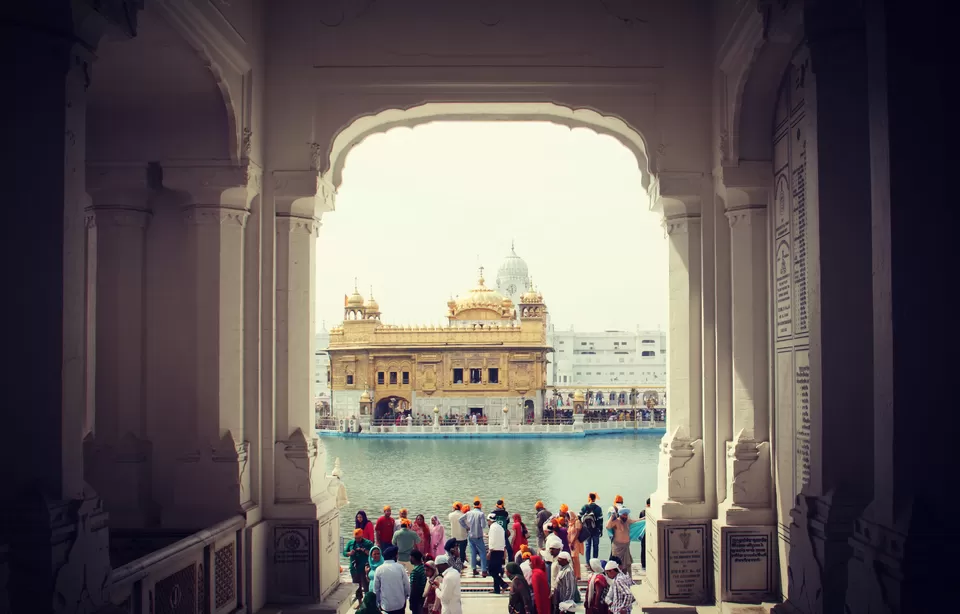
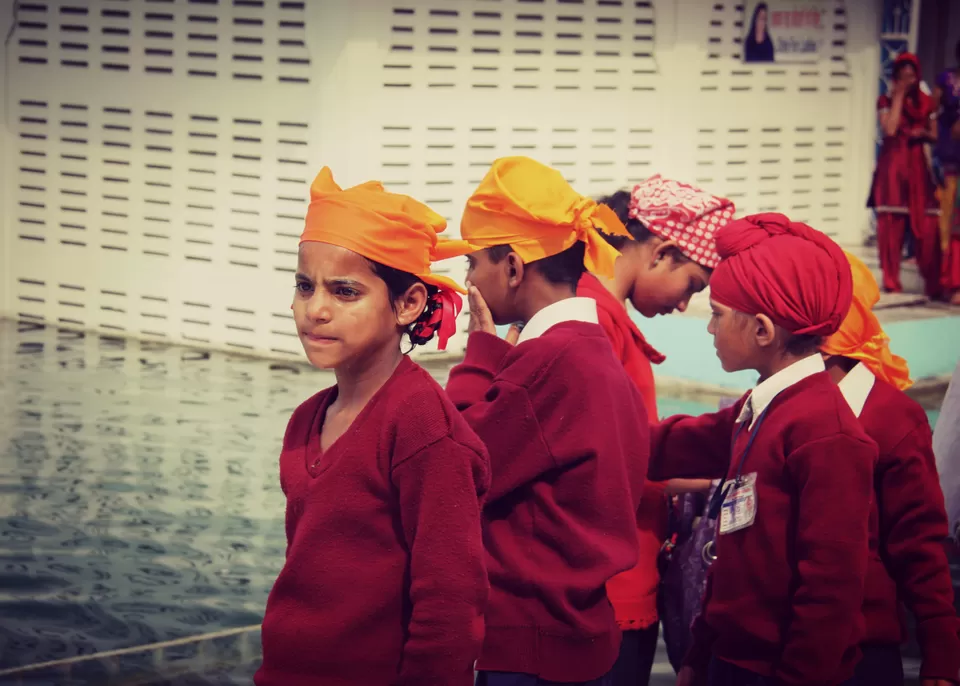
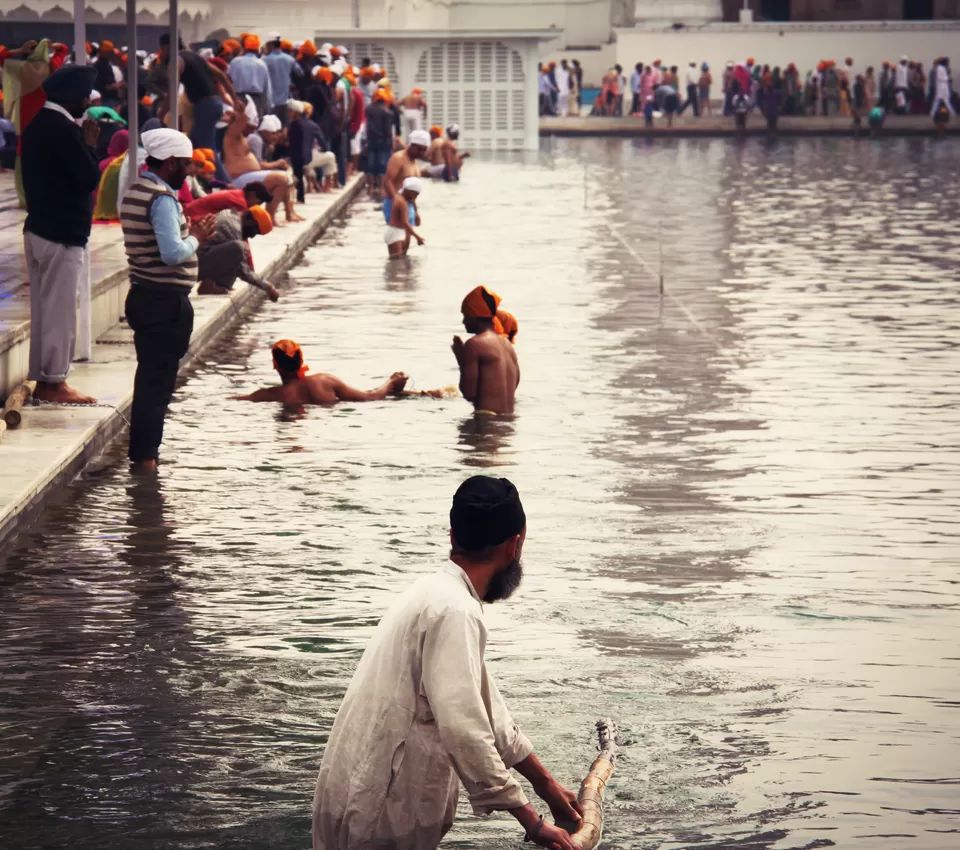
The Bagh is a 5 minutes walk from the Golden Temple itself. As I entered the narrow hallway from opening up to this huge garden, the first thing I noticed was a marking stating “This is the place where the bullets were fired from’. It was then, that I could entirely visualize the gruesome event that took place on April 13, 1929. As I approached the bullet marks on the walls, this eeriness surrounded me. It is hard to think how, from a lane, where even three people can't walk next to each other comfortably, one man managed to perpetrate a massacre, leaving a reported hundreds dead and thousands injured. As hoards of tourists surrounded the martyrs well, this space still had its own sense of silence that lets you recapture your thoughts and pay your respect to all those who lost their lives.
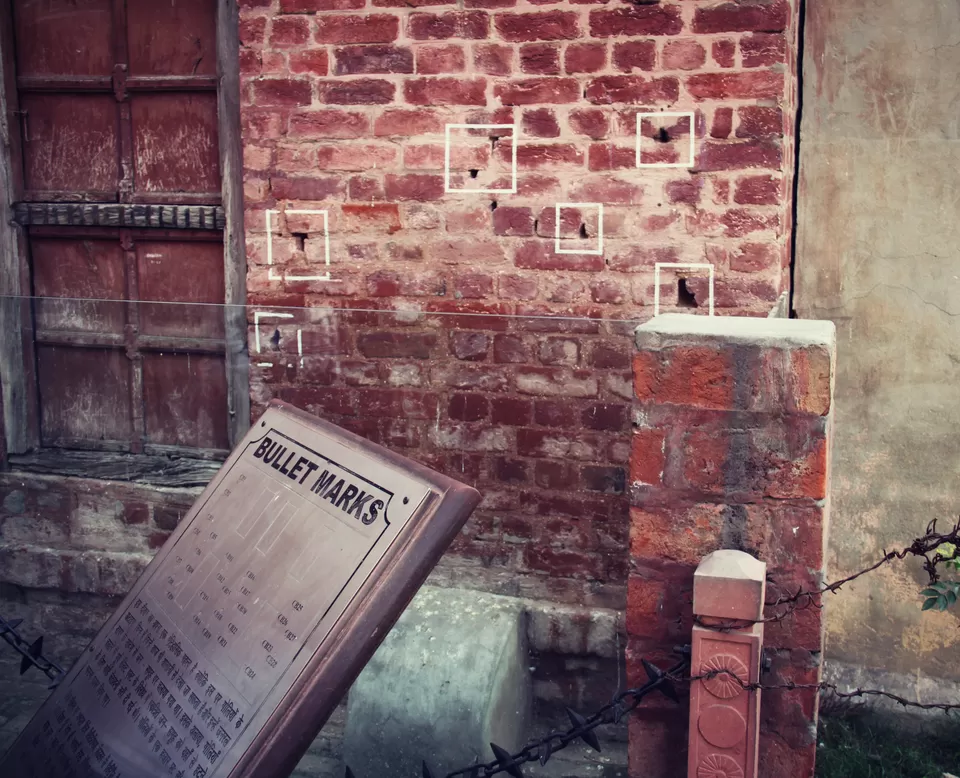
I stayed at Hotel Golden Tulip which was extremely comfortable and probably the best option in Amritsar if you’re looking at a tariff of INR3,203 - 5,158 per night.

Truly living up to its name and Amritsar’s pride, this small AC restaurant offered the best Amritsari fish I have ever tried with butter naan. For vegetarians, the best option would be to try the tomato paneer with any bread that they offer. The list of items on their menu wasn't extensive, but it absolutely aced when it came to parameters of taste and authenticity.
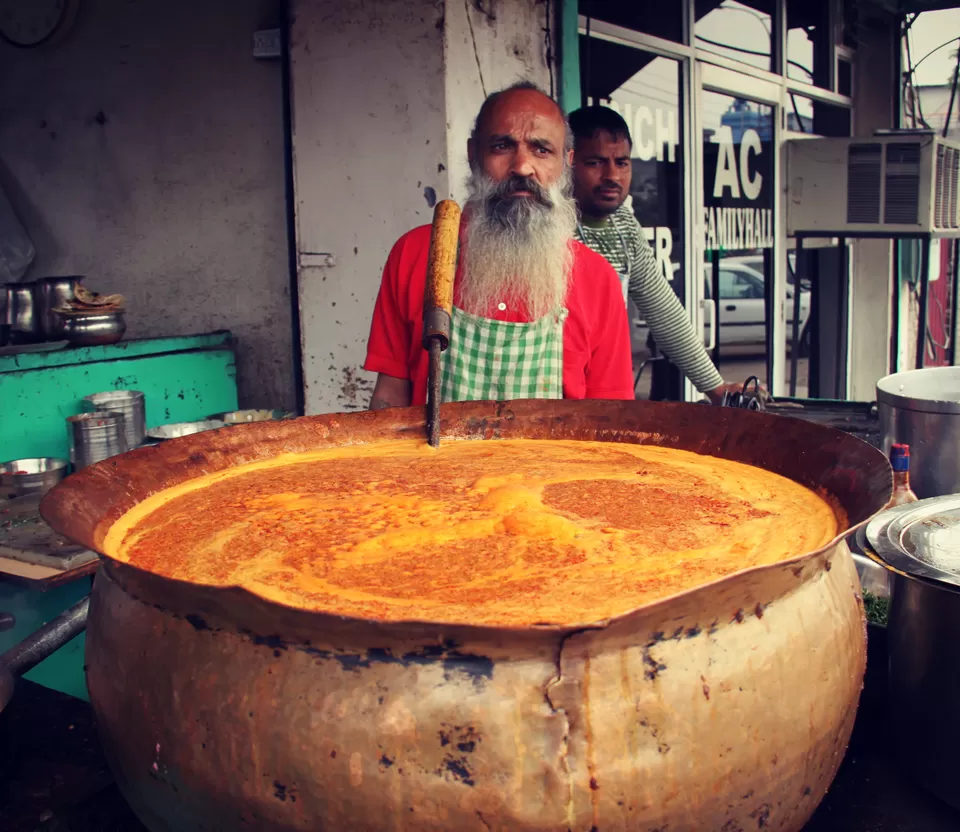

Attari station is about 30 minutes from the old city and only about 3.5 kms from the Wahga Border. The Samjhauta Express or the Attari Express leaves the Old Delhi railway station, and then travels to Attari, where the Attari Express changes formally into the Samjhauta Express. After the customs and immigration clearances at Attari, the passengers start their journey to Lahore in Pakistan through the Wagah border. This quaint station is a must visit, being the oldest train link between India and Pakistan since partition in 1947.
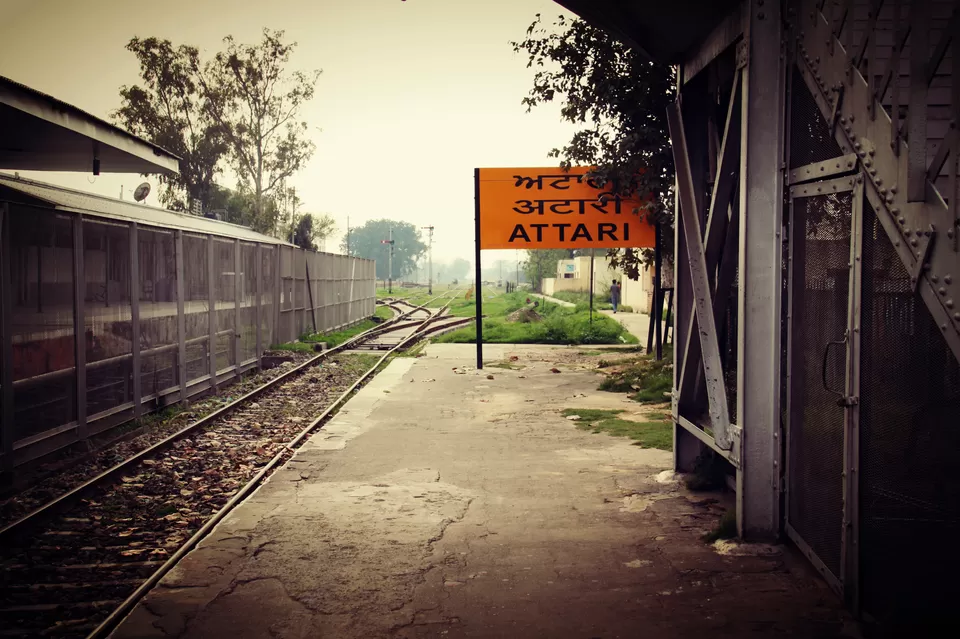
Wagah Border, the only open border crossing India and Pakistan and which is officially accessible by both the nations hosts a closing ceremony as 'lowering of the flags' ceremony. It is a daily martial custom that the security forces of India (Border Security Force) and Pakistan (Sutlej Rangers) have mutually followed since 1959. This interesting ceremony takes place every evening before sunset, around 5:30 pm.
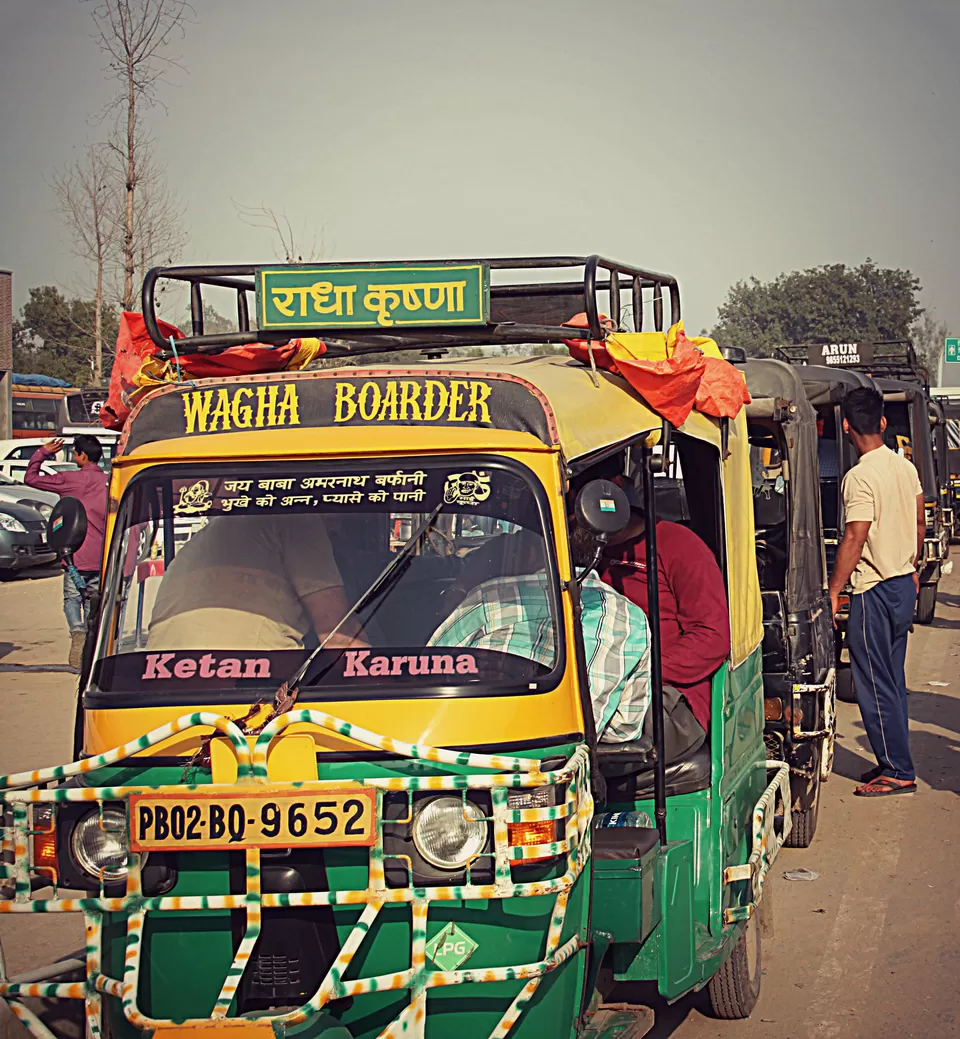
This restaurant offers top-of-the-line north Indian cuisine. I tried the stuffed paratha glistening with Desi ghee, offered here. They were of course out of this world and I felt I was already ready for a siesta.


Went to Raunaq Jutis in Hall Gate, which was recommended to me Mr. Itinder Singh. From here, I took a rickshaw to Hall Bazaar where I went to Raja Exclusive to shop for Phulkaari Chunnis.
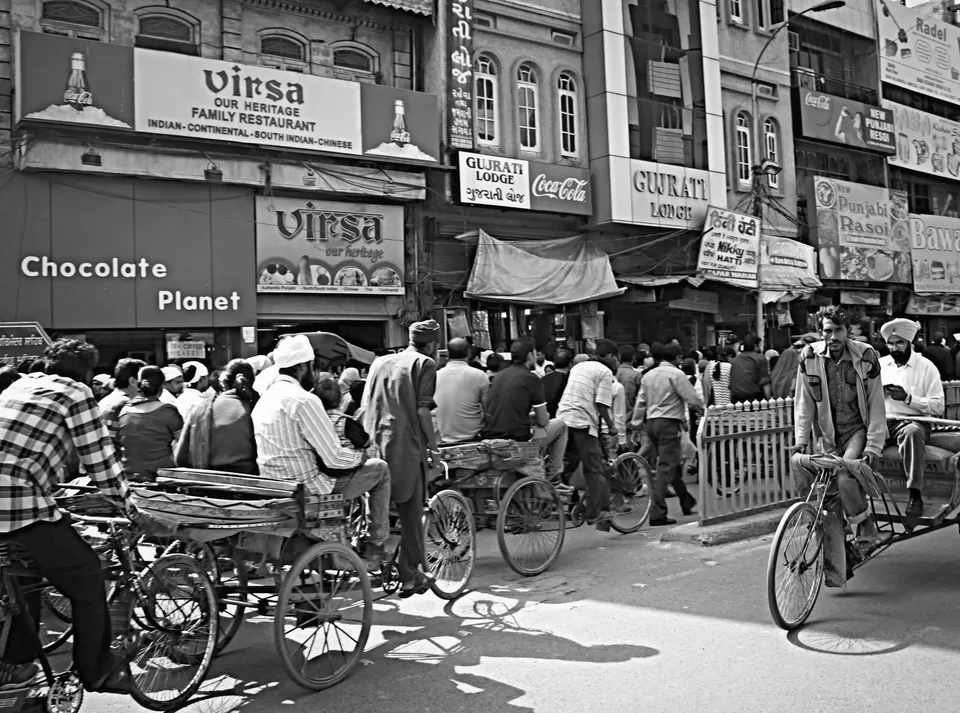
This fascinating and charming site is a based on one of the numerous legends from Mahraja Ranjit Singh’s time. The legend states that a young muslim dancer (Punjabi word Kanjiri for concubine) Moran, hailing from Lahore, once was on her way to dance at the Maharaja’s Baradari, her sandal fell into the water channel on the way. The piqued dancer refused to dance until a pul (bridge) was built, hence the place became popular as Paul Kanjri.







